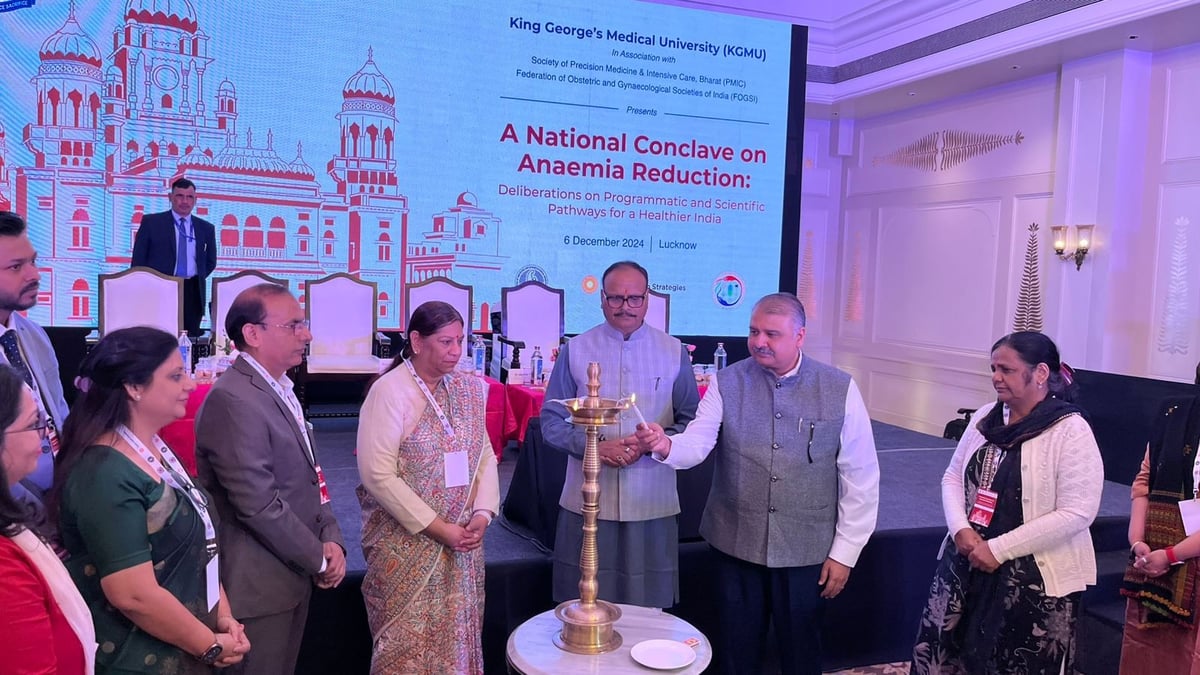Deputy Chief Minister Brajesh Pathak reaffirmed the government’s commitment to tackling anaemia and underscored its socioeconomic implications. |
Senior government officials and leading medical experts gathered at King George’s Medical University (KGMU) in Lucknow for the National Conclave on Anaemia Reduction, pledging to intensify efforts to combat maternal anaemia in Uttar Pradesh.
The high-profile event, organized in collaboration with the Federation of Obstetric and Gynaecological Societies of India (FOGSI) and the Society of Precision Medicine and Intensive Care (PMIC), aimed to advance innovative strategies and evidence-based solutions for one of India’s most persistent public health challenges.
Maternal anaemia, which affects nearly half of pregnant women in Uttar Pradesh, poses severe risks to both mothers and their children, impacting health, economic productivity, and cognitive development. Addressing these challenges, the conclave emphasized the importance of digital screening devices for accurate diagnosis and advanced treatment options such as intravenous iron therapies to improve outcomes.
Deputy Chief Minister Brajesh Pathak reaffirmed the government’s commitment to tackling anaemia and underscored its socioeconomic implications.
“Anaemia is a significant challenge, and reducing its prevalence among mothers and children remains a top priority. I am confident that the discussions here will yield effective solutions to address this issue comprehensively,” he said.
Highlighting the importance of collaboration, he added, “Under the visionary leadership of Hon’ble Prime Minister Modi, we have achieved remarkable milestones in public health. This conclave reflects our determination to tackle anaemia with the same grassroots focus and resolve.”
Uttar Pradesh has made notable progress in anaemia reduction, with maternal anaemia prevalence decreasing from 51% in 2016 to 45.9% in 2021, as per National Family Health Survey (NFHS-5) data. However, officials emphasized the need for sustained and innovative interventions to accelerate progress further.
The conclave featured technical discussions with leading experts. FOGSI President Dr. Jaydeep Tank highlighted the potential of integrating advanced treatments like Intravenous Ferric Carboxymaltose (IV FCM) into public health systems to combat severe anaemia effectively.
The role of digital haemoglobinometers for accurate and rapid diagnosis was also discussed, alongside recommendations for enhanced environmental safety measures and targeted policy reforms to address contributing factors like infections and heavy metal exposure.
This collaborative effort is expected to guide future policies and programmes aimed at reducing anaemia prevalence, driving a significant impact on maternal and child health across Uttar Pradesh and beyond.
